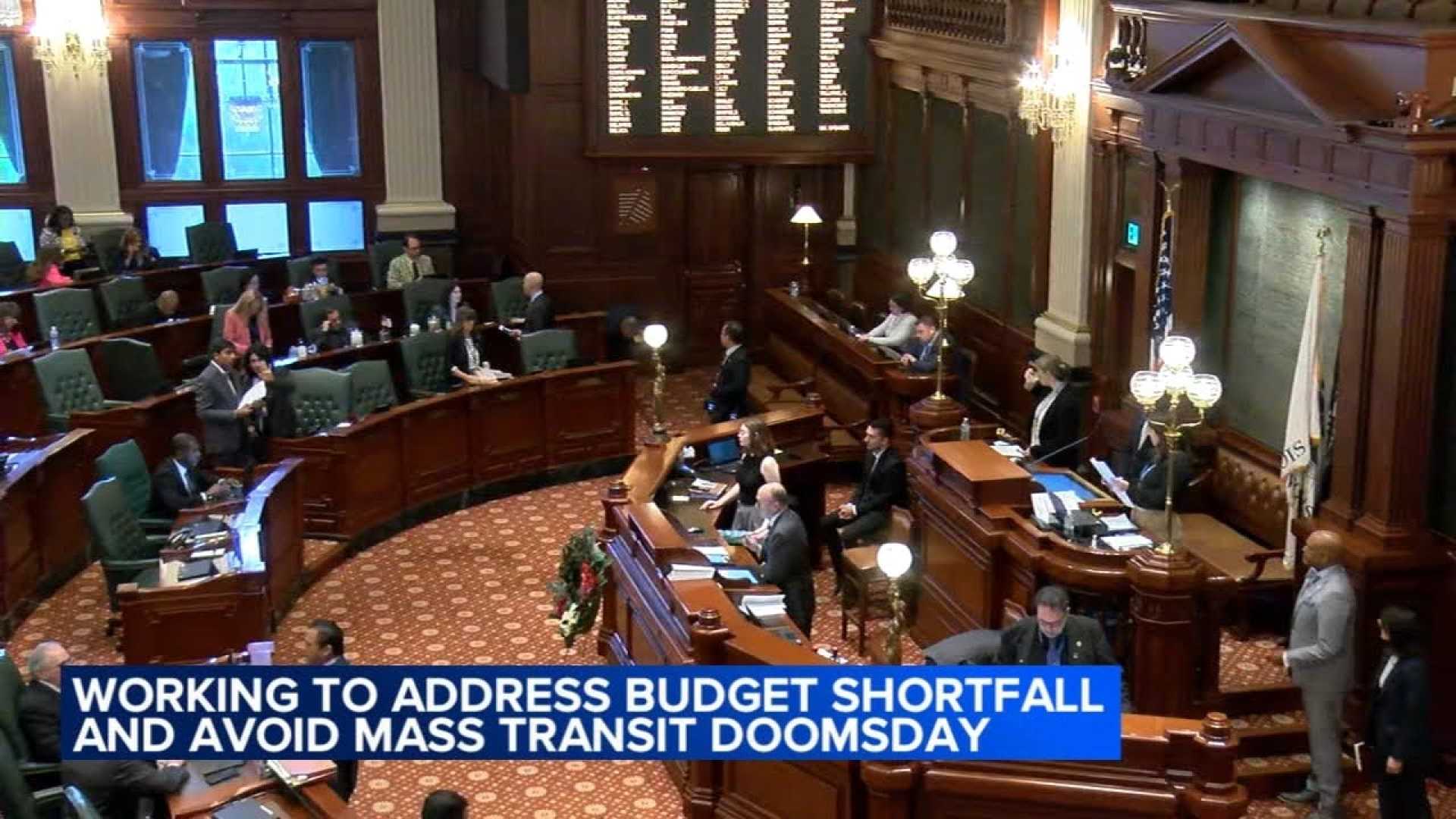Politics
Illinois Lawmakers Face Budget Challenges Amid Transit Needs

SPRINGFIELD, Illinois — As Illinois lawmakers approach the end of their spring session, they grapple with a significant budget gap and the urgent need to address failing public transit systems. This week, legislators are also considering Governor JB Pritzker‘s initiatives, including regulatory measures for cryptocurrency.
The General Assembly typically leaves critical decisions until the final hours of the four-month session, which is set to conclude on Saturday, May 31. Lawmakers, however, may need to reconvene to achieve a balanced budget, influenced by uncertainties surrounding federal funding.
Democratic Senator Elgie Sims of Chicago, who leads budget negotiations for Senate Democrats, expressed concerns over federal funding, likening it to the two-year budget standoff under former Governor Bruce Rauner. “There was a great deal of uncertainty,” Sims said. “That’s why you have to stay the course and have a clear understanding of priorities.”
Despite their majority control, Democrats face divisions between progressives and moderates, particularly over funding for health insurance for noncitizen immigrants under 65, which Governor Pritzker’s budget proposal does not cover.
Republican Senator Seth Lewis of Bartlett noted a reduced tone in funding requests this year due to Pritzker’s emphasis on fiscal restraint. “The governor’s early warnings to stakeholders have tamped down public requests for more money,” Lewis said, adding that it could alleviate demands for additional revenue.
House GOP leader Tony McCombie of Savanna criticized the Democrats’ approach to tax reform, pushing for broader considerations rather than increased revenue. “We need to lower our corporate income tax,” McCombie stated, referencing the state budget’s growth under Democratic leadership, which has surged from around $40 billion to over $50 billion in the last decade.
Amid these discussions, a report showed that state revenue growth has fallen short of expectations, complicating efforts to secure funding for the struggling Chicago-area transit systems. The Chicago Transit Authority (CTA) has warned of a potential service crisis if lawmakers fail to act by May 31.
“The magnitude of these cuts is unprecedented,” CTA spokesperson Catherine Hosinski stated, underlining the urgency for state action. Meanwhile, transit conductor Orlando Rojas warned that hundreds of jobs could be at risk without necessary reforms.
Commuters like Sarah Chiappe, a line cook at a downtown hotel, rely on public transportation for their jobs and fear the consequences of service cuts. “I love taking the train,” Chiappe said. “But cuts could force me to use more expensive ride-sharing options.”
Senator Ram Villivalam, involved in transit discussions, remains hopeful for a resolution. “There’s a lot of consensus related to centralizing responsibilities,” he said, emphasizing the principle of reform accompanying funding.
The legislature is also debating pension system reforms, addressing inequities between veterans and newer employees that could lead the state towards significant liabilities. Governor Pritzker has proposed $78 million to tackle these issues.
As lawmakers continue to negotiate, discussions surrounding legislative initiatives on regulations affecting prisons, education, and consumer protections are also underway. Pritzker is pushing multiple bills related to education, including guidelines to limit cellphone use in schools, and to regulate pharmacy benefit managers, amidst ongoing debates about access to abortion healthcare.
“The discussion will continue in the coming week,” Sims noted, highlighting the need for a balanced budget that meets the needs of vulnerable populations.












